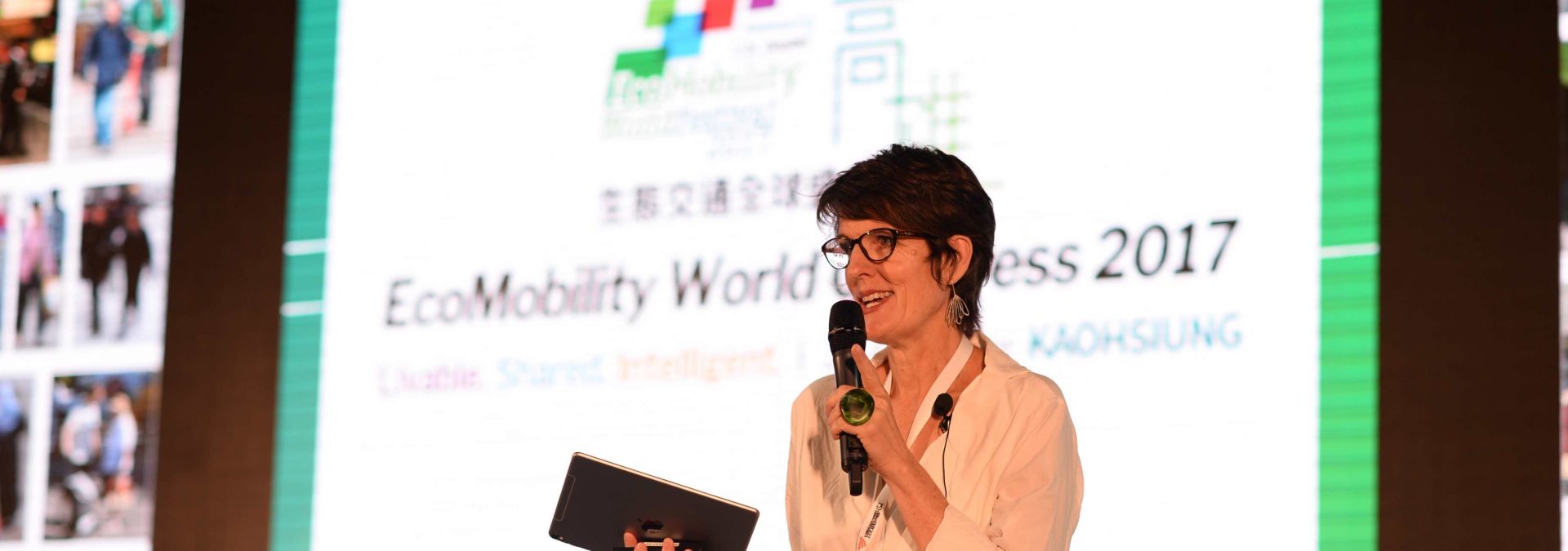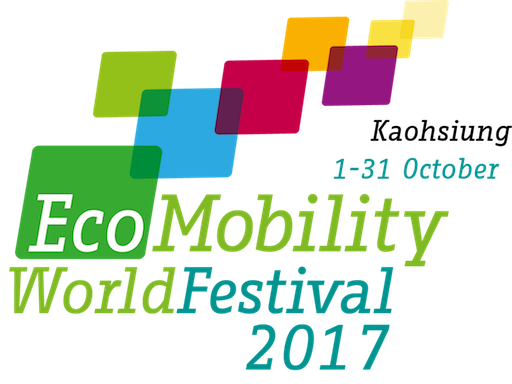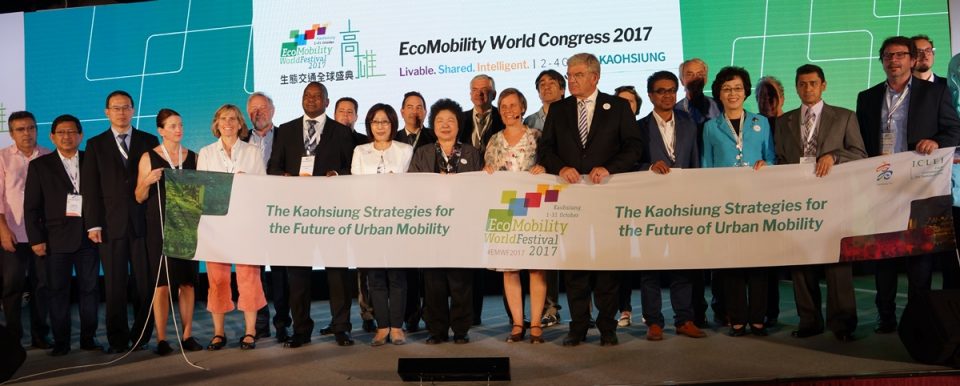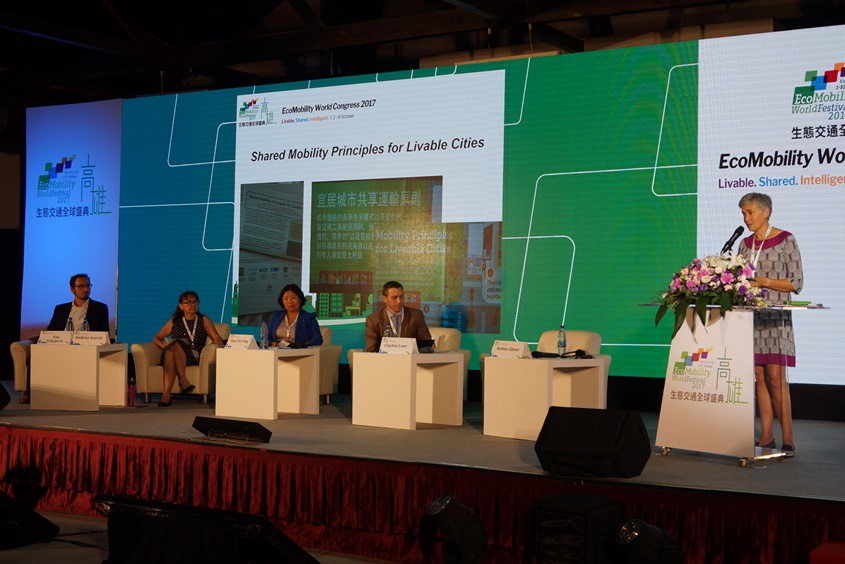The power of language to change minds and behavior

One of the main obstacles to implementing ecomobility is the required cultural and behavioral changes. Time and again, cities face this challenge as they strive to transform their transportation cultures and systems.
There are innumerable complex factors that affect how culture is created and maintained, but one key element is the power of language. Many speakers at the EcoMobility World Congress 2017 acknowledged the role that language and terminology can play in shaping our beliefs and behaviors related to transport.
Konrad Otto-Zimmermann, Creative Director of the Urban Idea, an urban sustainability think tank, stressed the importance of naming in order to normalize practices within our cultures. He argued that you cannot promote something you cannot name. While the convention automobile has only existed since around 1885, it has gained unparalleled symbolic status. The term ecomobility is an attempt to name the alternate forms of mobility and transport, eventually becoming an influential term and symbol.
This idea of normalizing sustainable transport through language was also taken up by Bronwen Thornton, Development Director at Walk21, an international charity that promotes walking. She further explored the degree to which cars and motorized transport have been normalized through language, while walking has been marginalized just by the way we talk about it. Thornton pointed out that the word “pedestrian” – which refers to “a person walking” – has also come to mean “commonplace, unimaginative or dull”. Even the term “sidewalk” both physically and symbolically positions walking as peripheral, just solidifying the status quo of urban design centered on moving cars through space rather than moving people.
Thornton argues that we have to change the narrative about how we talk about cities, transport and mobility: “We can’t underestimate the power of language in shaping the physical spaces that we occupy,” she explained.
Ultimately, in order to successfully implement ecomobility within a city or community, our ideas about mobility must change along with our behaviors, and that transformation can begin with language.



